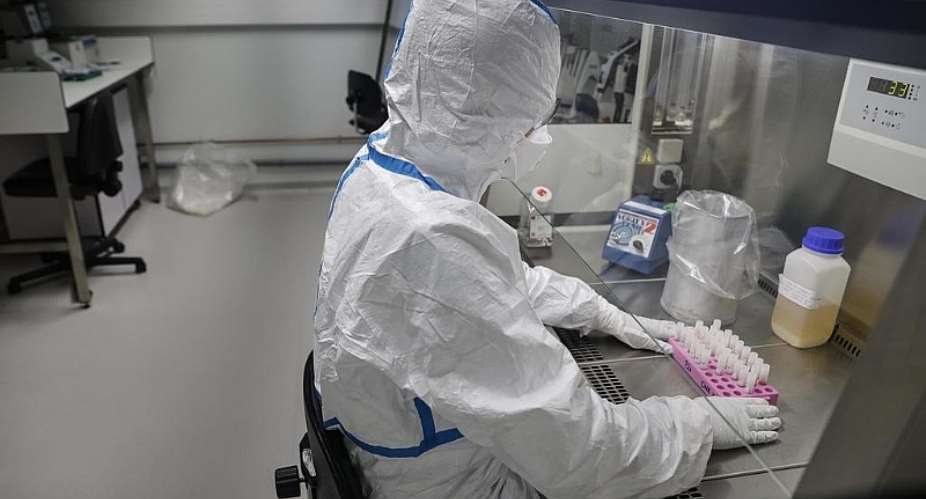Mild cases of Covid-19 produce antibodies whose neutralising effect increases in the weeks after infection, though further research will determine how long they last, French researchers said Tuesday.
This comes after a study of health workers who became infected during the outbreak of the new coronavirus in eastern France.
Research into infections of health workers at a university hospital in Strasbourg, published on the site MedrXiv.org, found that infection gave rise to antibodies that neutralised the coronavirus and were still present six weeks after symptoms appeared.
The results still have to be peer reviewed, but authors said the study, carried out in partnership with France's reputable Pasteur Institute, was a positive development in understanding the immune response to the new coronavirus.
“The results of this study are very encouraging for those who have been infected by the virus,” Samira Fafi-Kremer, head of virology at the Strasbourg hospital and the study's lead author, said in a statement.
“Even those who develop mild cases of Covid-19 are capable of producing antibodies that remain present at least 40 days after the appearance of symptoms. It remains to be determined how long they last.”
Study in one of France's most affected areas
Eastern France became an epicentre of the country's Covid-19 epidemic after the virus causing the disease rapidly spread during an evangelical gathering in Mulhouse in mid February.
Several dozen health care providers and administrators at the Strasbourg hospital became infected with the SARS-CoV-2 coronavirus from early March.
In April, researchers analysed blood samples from 160 staff who had shown classic Covid-19 symptoms such as fever, breathing difficulties and loss of the sense of smell, but whose cases did not become serious enough to require hospitalisation.
Antibodies in 2 weeks
Researchers conducted two types of tests on the samples, which were taken between 13 and 39 days after symptoms appeared.
Rapid immunodiagnostic tests found antibodies in 153 of the samples and an S-Flow test found them in 159 samples, meaning antibodies were detected in all but one of the 160 participants.
“We know people with severe infections produced antibodies within 15 days after the appearance of symptoms,” said Arnaud Fontanet, one of the authors of the study and head of the global health department of the Pasteur Institute.
“Now we know the same is true for those with minor infections, even if the rate of antibodies is apparently smaller.”
Neutralising effect
The analyses also found neutralising antibodies in greater proportions in samples collected five to six weeks after the symptoms appeared compared with those collected after three weeks.
Neutralising antibodies were found in 79 percent of samples taken 13 to 20 days after the appearance of symptoms, 92 percent in those taken after 21 to 27 days and 98 percent in those taken after 28 to 41 days.
Observing that antibodies were detected in nearly all hospital staff infected with Covid-19, researchers concluded neutralising activity of antibodies increased over time and that future studies would determine how long the antibodies persisted.
Researchers also said the study demonstrated the pertinence of blood tests for diagnosing individuals who have recovered from Covid-19.





 Tuesday’s downpour destroys ceiling of Circuit Court '8' in Accra
Tuesday’s downpour destroys ceiling of Circuit Court '8' in Accra
 SOEs shouldn't compromise on ethical standards, accountability – Akufo-Addo
SOEs shouldn't compromise on ethical standards, accountability – Akufo-Addo
 Father of 2-year-old boy attacked by dog appeals for financial support
Father of 2-year-old boy attacked by dog appeals for financial support
 Jubilee House National Security Operative allegedly swindles businessman over sa...
Jubilee House National Security Operative allegedly swindles businessman over sa...
 Nobody can order dumsor timetable except Energy Minister – Osafo-Maafo
Nobody can order dumsor timetable except Energy Minister – Osafo-Maafo
 Mahama wishes National Chief Imam as he clock 105 years today
Mahama wishes National Chief Imam as he clock 105 years today
 J.B.Danquah Adu’s murder trial: Case adjourned to April 29
J.B.Danquah Adu’s murder trial: Case adjourned to April 29
 High Court issues arrest warrant for former MASLOC Boss
High Court issues arrest warrant for former MASLOC Boss
 Align academic curriculum with industry needs — Stanbic Bank Ghana CEO advocates
Align academic curriculum with industry needs — Stanbic Bank Ghana CEO advocates
 Election 2024: We'll declare the results and let Ghanaians know we've won - Manh...
Election 2024: We'll declare the results and let Ghanaians know we've won - Manh...
